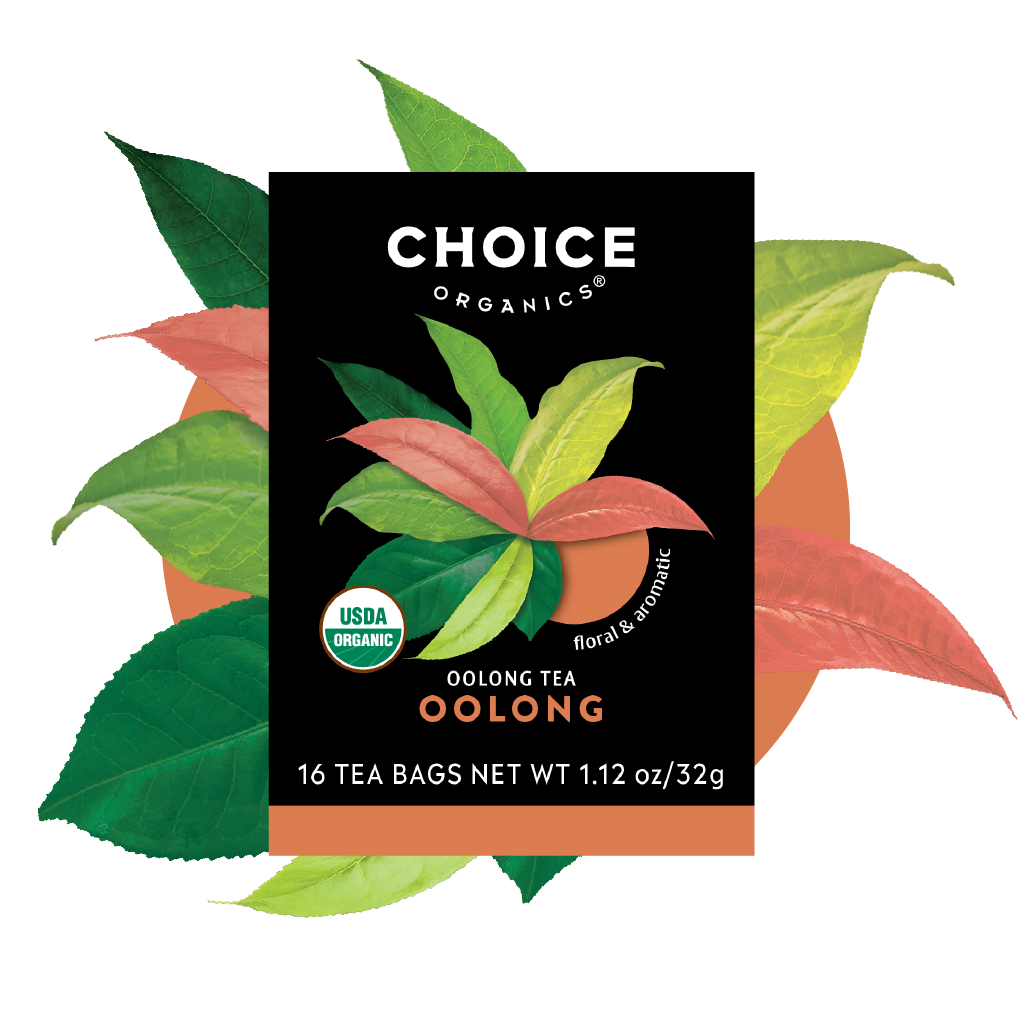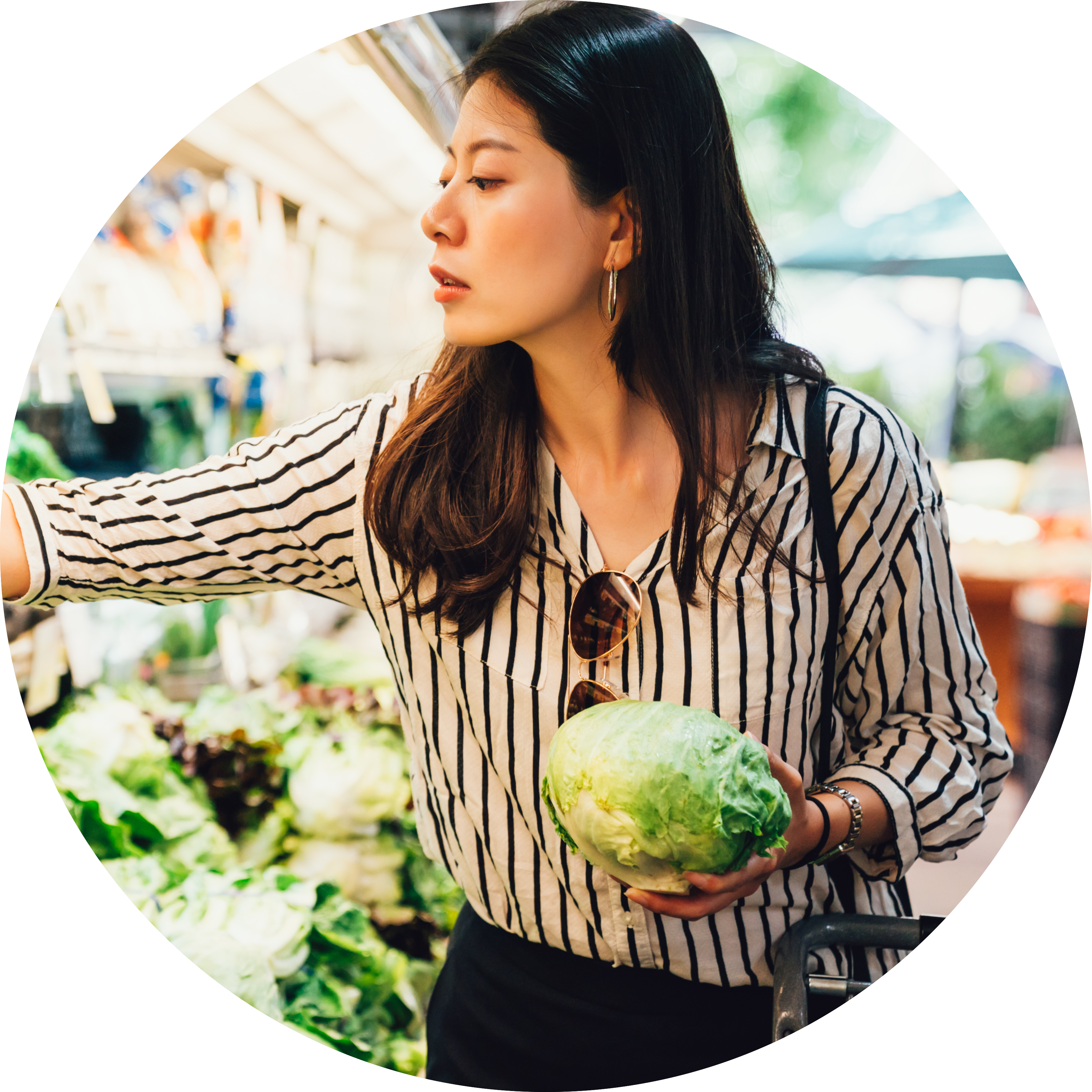Consuming with Intention
A Q&A About Organic Certification
I see a lot of organic products on grocery shelves. It must be easy to get certified, right? It can’t be that meaningful if so many companies are doing it!
Organic is definitely popular, but popular doesn’t mean easy! Organic standards are strict, ensuring that crops are handled more respectfully than a conventionally grown alternative. For reference, conventionally grown food producers can use any of the following on their farms:
Ash from manure burning.
Arsenic.
Lead salts.
Strychnine.
Tobacco dust (nicotine sulfate).
Organically grown products cannot use any of those things.
Any field that aims to produce organically labeled ingredients must operate organically for three years before it can be certified. This time allows the soil to recover from the intensive herbicide and pesticide use that defines conventional agriculture, as well as ensures that organically labeled foods are as clean as possible from day one.
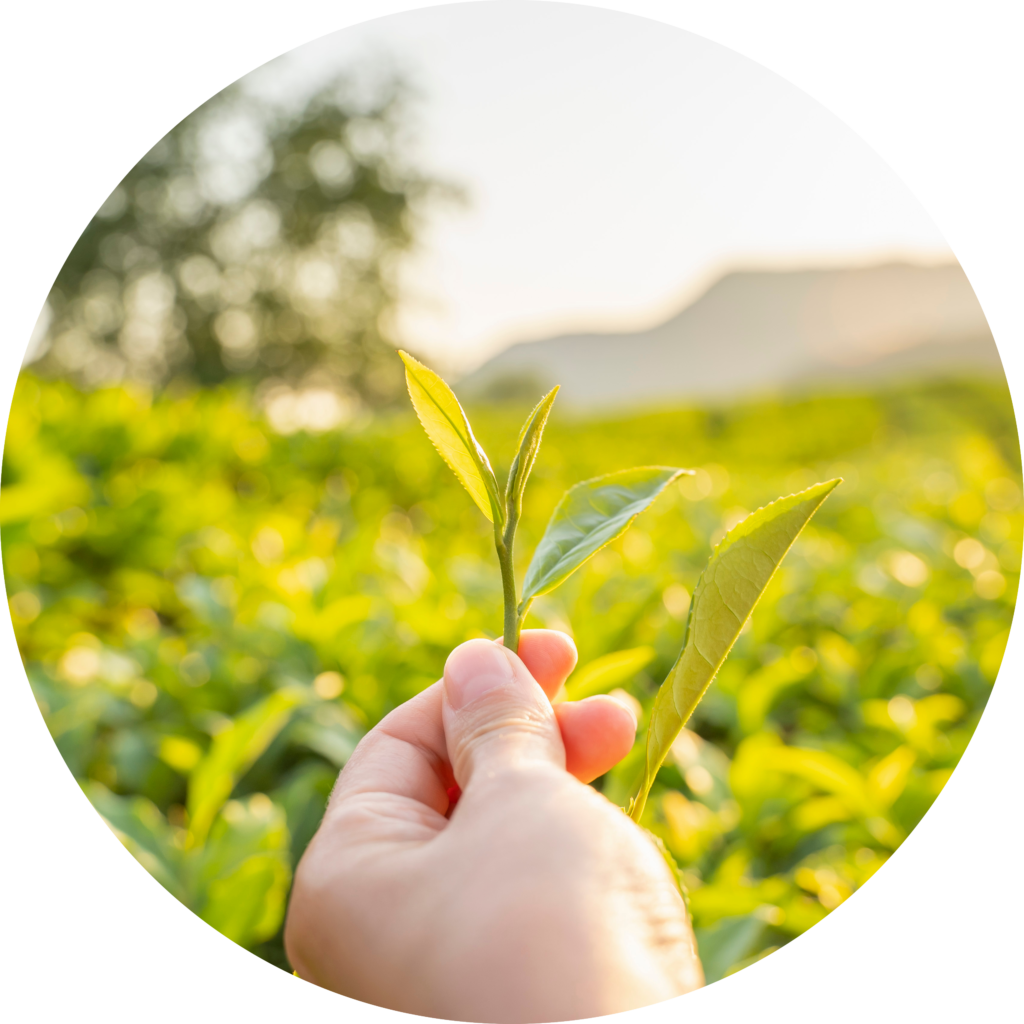
I get that it sounds good, but what does organically grown food actually do? Is there really a difference between organic and conventional food?
There is! Studies indicate that organically grown food is richer in key nutrients like polyphenols, antioxidants, and minerals. For teas like ours, that means organic farming delivers more of the flavor you expect. After all, organic farming does a better job of promoting soil health than conventional methods and many nutrients come from the soil. As well, employing holistic methods of pest management rather than saturating plants with pesticides means increasing biodiversity and creating healthier ecosystems. We’re convinced that a healthier environment always creates a healthier tea!
Is organic farming really that much better for the environment?
It is. Many of the most pressing environmental issues today stem from irresponsible farming practices. Agricultural runoffs that poison rivers, loss of diversity due to excessive pest- and herbicide use, topsoil degradation, and even carbon emissions find their roots in conventional farming. Implementing organic farming improves every one of those issues while opening space for nature to heal. Along with being better for you and better for the environment, organic farming is also better for farmers. Avoiding harmful pesticides supports farmer health, and we believe it is important to support the wellbeing of farmers in every way we can.
There’s still work to do, even beyond organics. Regenerative agriculture offers further improvement, and we’re already working with our farmers to explore this exciting next step.
At Choice Organics, we exist to inspire. We want the world to be a better place because we’re in it, and we feel that organic farming helps us on that journey. Between our organic farming and our other social and environmental commitments, we hope you feel inspired to keep living better alongside us.
Our Top Choices
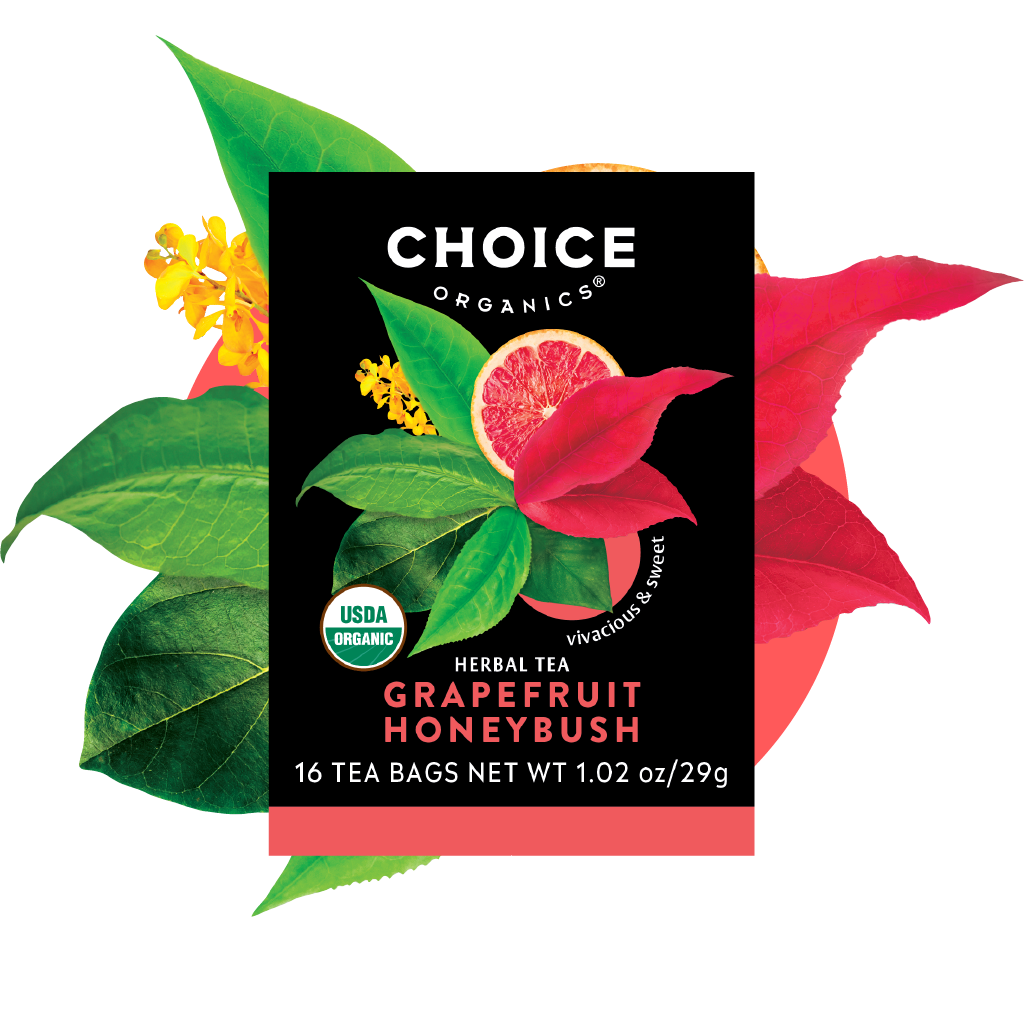
Organic Grapefruit
Honeybush Tea
Learn More
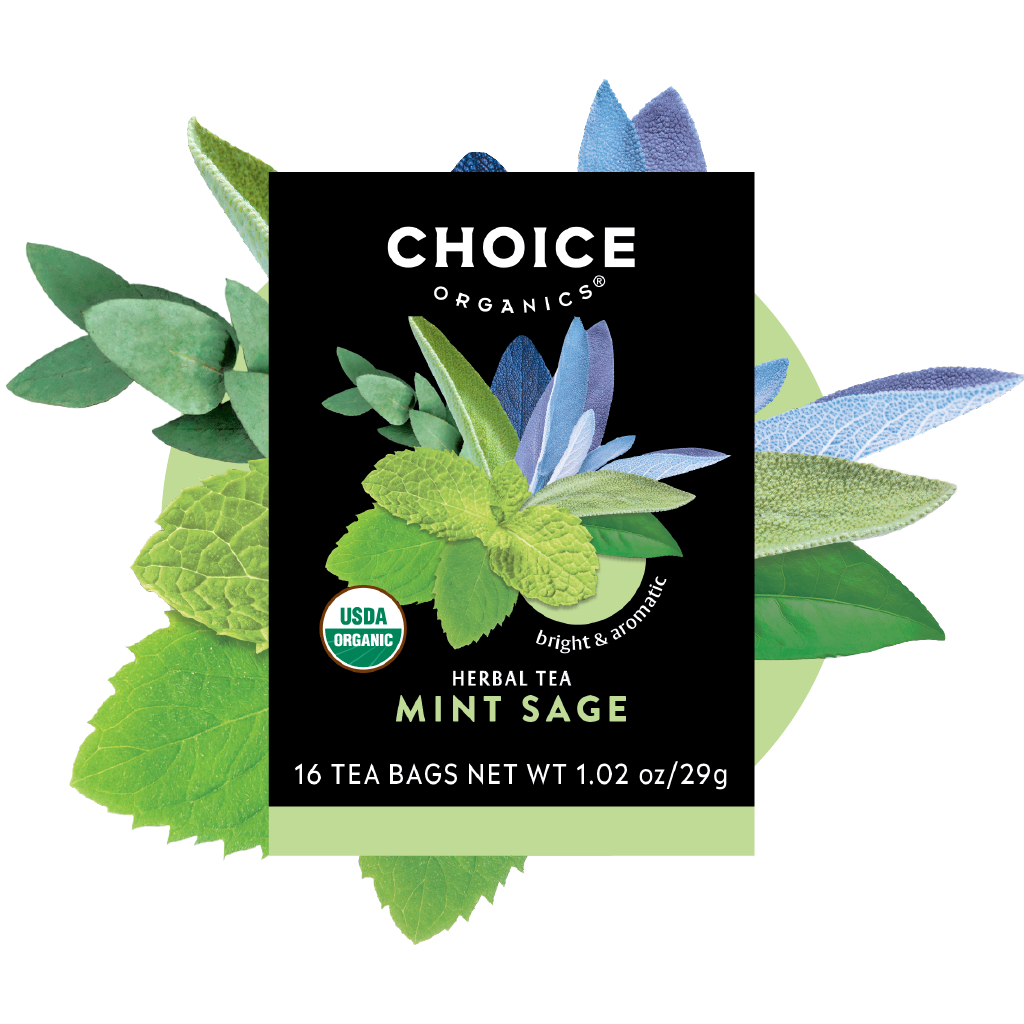
Organic Mint
Sage Tea
Learn More
